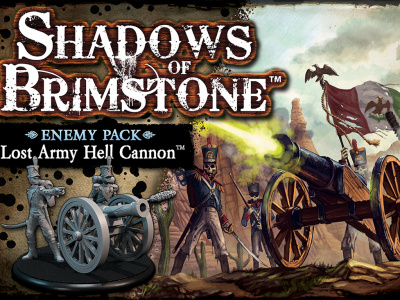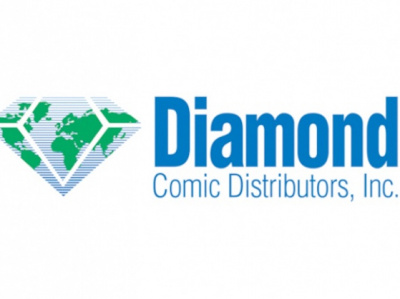Sharpening the Sword is a regular column by retailer John Riley of Grasshopper's Comics, a 1300 square foot comic and games store in
I apologize for letting the column lapse. To say I've been busy would be an huge understatement, but quite a few large projects are coming to a close, and it looks like things are getting back to normal. In the time I haven't written there has been a lot of interesting news, but one thing I found incredibly surprising was that only one retailer commented on the court ruling essentially overturning the ban on minimum price setting. That was a story that I thought the comic/gaming industry would jump on in a second, but it was met with deafening silence. I guess we all think that ultimately it just can't happen.
I've actually seen quite a few articles on this ruling in magazines about other industries, including in a PC magazine this month. I was a bit surprised when I saw it, as I thought the ruling was something much more applicable to our kind of hobby industry. But the world of PCs and accessories has moved very heavily online in the past few years with a number of dedicated computer chains closing. In the article they stressed that setting minimum pricing on computer accessories would essentially create a huge barrier to entry in their industry. Since everyone would have to compete at the same price, retail companies would have to differentiate themselves based on their selection and service. Essentially, they said that the only way a new Internet retailer could successfully enter the industry would be if they had very deep pockets to compete on selection and service, or an army of lawyers to challenge the ruling.
As in our industry, apparently newcomers to their industry tend to try to attract attention with low prices. They know they can't match the established retailers' service or selection, so they try to steal their sales with low prices, and use those revenues to build up their companies. Sound familiar?
I've spoken with quite a few hopeful hobby store owners over the past few years. When they've asked me how much it would cost them to open a successful store I generally tell them, 'You need somewhere between $80-$125K to open a professional, full service shop with the inventory level you'd need to generate enough profit to actually support yourself.' The almost universal response is laughter. They certainly wouldn't invest that kind of money in the business even if they had it. Then, as soon as they're done laughing, they almost always say the same thing: 'I think I'll start out selling online out of my house and use the profit to build up some inventory and get the business going that way.' And unfortunately, in our industry that's still all too easy to do as there are distributors who will deal with them and the minimum orders are almost ridiculously low.
But all of these small Internet sellers working out of their basements combine to devalue the products that we sell, and I think that is the key issue with minimum pricing as it pertains to our industry: the perceived devaluation of product. While a box of Magic may have a suggested retail price of $144.00, our 'market' has set a price about 40% lower than that. This is the same with many product lines, including games, statues, busts, etc...
Of course we all know that none of the Internet retailers expand the market by creating new hobbyists as well as a brick and mortar store does. But while the Internet retailer might be happy making 10% profit out of his barn, the brick and mortar store taxed with the job of actually creating new hobbyists can't exist on those margins.
If at least some of the manufacturers in our industry adopted a minimum pricing policy, it could provide us with the financial motivation to once again push certain products. I haven't promoted Magic in years because the flea market next door sells boxes for about $2 more than I buy them direct from WotC. Of course, for any minimum pricing policy to work, the manufacturers would have to actually care. WotC has claimed time and time again that it can now track customers through the SKUs on packs and boxes of Magic, and then use that information to shut down deep discounters. We've submitted the SKUs of boxes of Magic bought at our flea market to WotC five times, and added the receipts, the location and contact information for the flea market vendor, as well as the name, address, phone number and sales rep of the distributor supplying them! But nothing has ever been done (WotC's only response has been requests to just do it all again, but at this point we know when we're wasting our time). The only conclusion we can draw from this is that although the market has devalued the retail price of the product, WotC is still getting its wholesale price and that's ultimately what they care about.
Of course there are many vocal hobbyists who scream whenever a company tries to diminish Internet retailers who deep discount. These hobbyists feel it is their right to purchase everything at cost, and are usually the same people who expect you to have ample free in-store gaming and events for the games that they refuse to buy from you.
Internet sellers point out that the majority of their customers don't have a local shop to service them (which is usually true). But I think even the Internet retailers would be happier if they were all 'forced' to charge more. After all, if the majority of their customers are people who can't find what they're looking for at their local shop, then price isn't the primary concern. The only people who would be really hurt are the hobbyists selling stuff out of their basement. The legitimate Internet sellers would be able to compete on selection and service, while those operating on five boxes of Magic out of their basement wouldn't.
Of course, even if manufacturers and retailers endorsed minimum pricing policies, I doubt there would be anyone who could enforce it. The closest is probably WizKids, which at least has a handle on its distribution channel through its exclusive deal with
For this industry to flourish and grow (sorry, but survive isn't good enough) we need retailers who are highly profitable as that will encourage others to actually invest real money into opening new, highly professional, stores. Stronger, more profitable, retailers will also have more incentive to open additional locations. All of this will ultimately increase the size and number of retail outlets for all manufacturers, providing a healthier market for everyone. But with our products routinely being devalued in the market, this is something that becomes continually harder to do.
Next Week: Harry Potter and the Mysteriously Disappearing Profit
The opinions expressed in this Talk Back article are solely those of the writer, and do not necessarily reflect the views of the editorial staff of ICv2.com.







